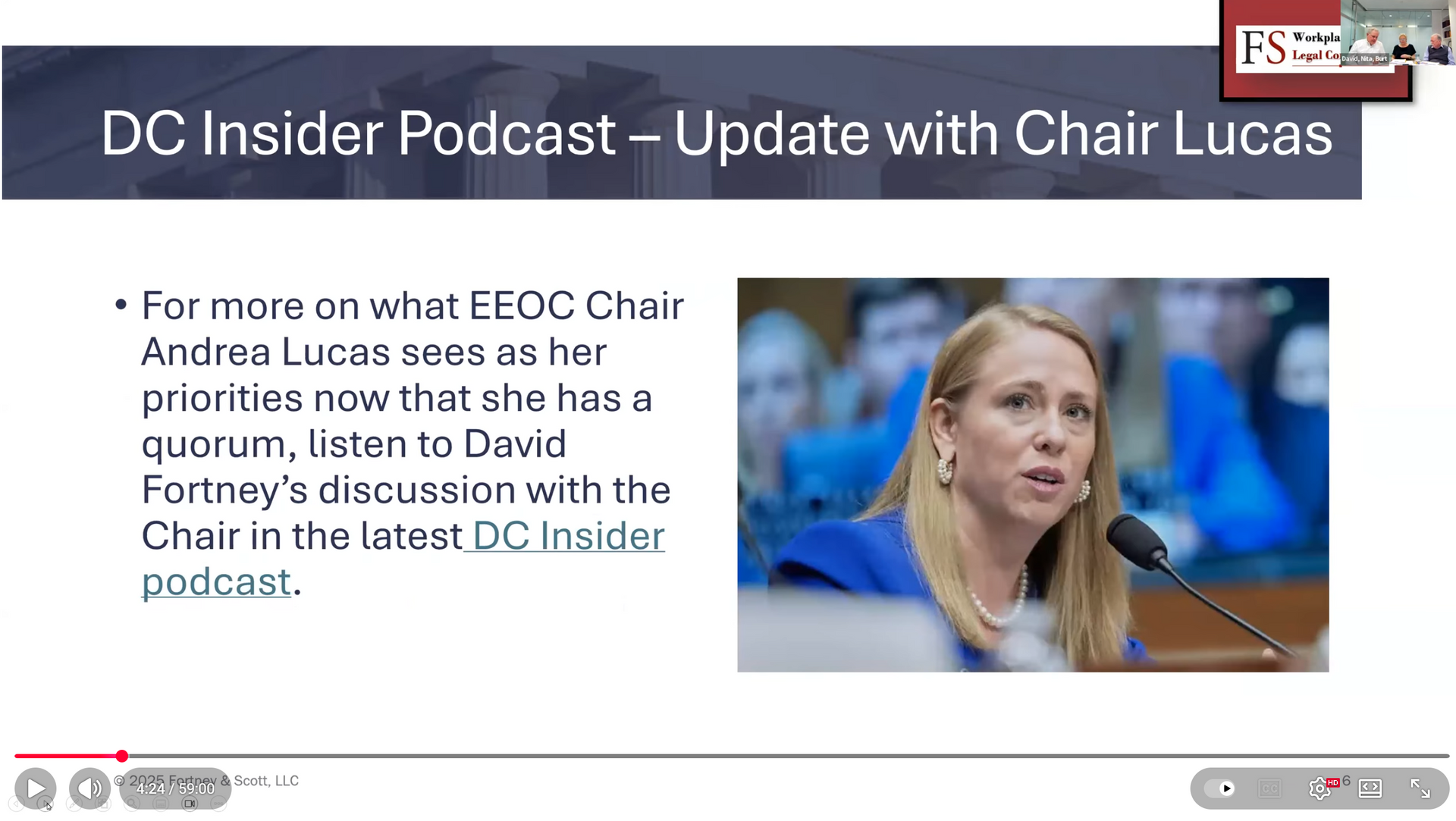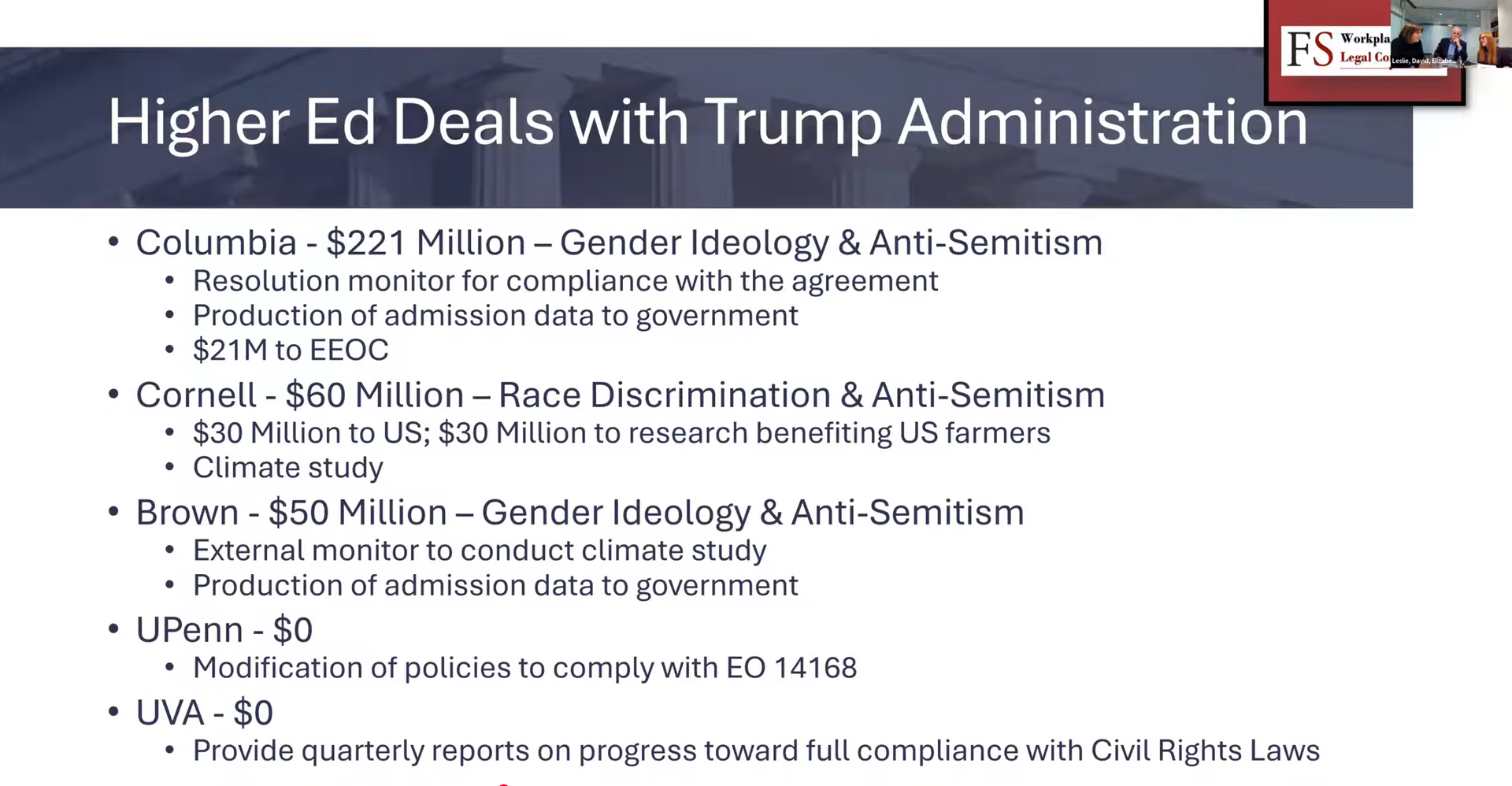Adriana R. Joens
ADRIANA R. JOENS
ASSOCIATE
WASHINGTON, D.C.
Tele: (202) 689-1200 | Fax: (202) 689-1209
ajoens@fortneyscott.com
Adriana Joens is an Associate with 25 years of experience in the legal field, including paralegal (10 years) and compliance specialist (15 years) positions.
Ms. Joens works closely with employers to provide counsel and guidance on a broad spectrum of workplace issues, including: wage & hour matters; compliance with Title VII of the Civil Rights Act and other EEO laws; navigating the recent Administration changes relating to diversity, equity, inclusion and accessibility (DEIA); investigations of workplace misconduct; federal contractor obligations, and the development of workplace policies that comply with state and federal law.
Ms. Joens has extensive knowledge and experience in matters regarding the Fair Labor Standards Act (FLSA), the McNamara-O'Hara Service Contract Act (SCA) and Davis-Bacon Act (DBA). She advises and represents clients in applying FLSA, SCA, and DBA during self-audits, or audits brought on by the U.S. Department of Labor (DOL)’s Wage and Hour Division. She also works closely with clients to implement and develop policies and practices that comply with the prevailing wage and benefit requirements of the SCA and DBA. Recently, Ms. Joens has assisted clients in securing SCA conformances for jobs that were not listed in the SCA Occupational Directory; successfully representing and closing DOL wage and hour audits with no violations, navigating the prevailing wage obligations under the Infrastructure Investment and Jobs, Inflation Reduction, and CHIPS Acts; advising clients through self-audits in complying with SCA and DBA prevailing wage requirements; maintaining a DBA database of wage determinations and conformance rates in preparation for nationwide work under the Infrastructure Investment and Jobs Act; and providing support in FortneyScott successfully negotiating regional rates for an SCA nationwide contract.
Firm Practices
- Washington DC Expertise
- EEOC Compliance
- Inclusion and Opportunity
- International
- Federal Contractor Compliance
- Pay Equity
- Wage & Hour
- Workplace Investigations
Admitted to Practice
- District of Columbia
Education
- Creighton University School of Law (J.D.)
- Creighton University (M.S., Public Policy)
- University of Nebraska – Omaha (B.A.)








